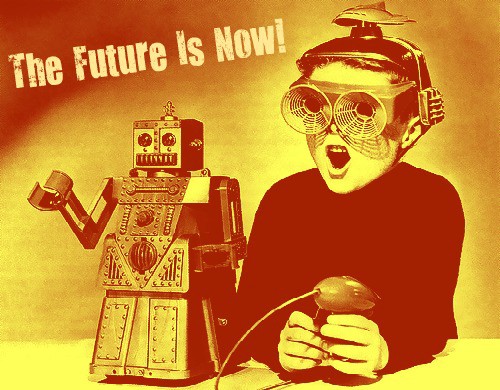The Future is Now!
By Mayfield UK, Wednesday 27th May 2020
You’re a peasant. A stinky, smelly peasant (we’re going somewhere with this, bear with us).
It’s the fourteenth century. Around half of England’s population has perished in the Black Death. This is unfortunate and everything, but manpower shortages mean increased demand for your services and a boost to your income - market forces and all that. Naturally, you and all your peasant friends are happy about this. Perhaps you can upgrade your turnip cart or whatever. Buy some flashy new oxen.
The landowners – paying more and producing less – are not so happy. The economy deteriorates, and the King, struggling to finance the latest of England’s interminable wars in France, introduces a Poll Tax. Things get crazy and a fight breaks out within walking distance of Mile End tube station.
This, for those of you who chose not to take A Level History, is the story of the Peasants’ Revolt.
To put it another way: One day, in the middle of the fourteenth century, a black rat strolled aboard a merchant ship bound for Genoa. Fifty years later, half of Europe was dead and England’s peasants were at war with their feudal overlords.
You’re familiar with chaos theory, of course – the notion that complex events can be traced to random happenstances: a butterfly beats its wings in Mexico and a week later your bike gets stolen, etc.
History isn’t a linear process. From time to time it takes weird, unpredictable detours.
Currently, we’re living through events that no one could have predicted. A virus jumped species in a Wuhan wet market (probably) and now government advisers can’t take day trips without the newspapers getting in a tizzy.
So, what’s next?
The unforseeable has happened. Let’s see if we can make some predictions about what the world will look like once you’re able to sit in somebody else’s living room again. (No, the peasants aren’t going to be revolting any time soon. Although some governments will have to answer some tough questions about their lack of preparedness. And there’s a chance the issue may swing the forthcoming US Presidential election, if it isn’t postponed…)
What are the ramifications for business? The lockdown has consolidated one important trend – forcing us off the streets and onto our computers. Theo Paphitis has warned that lockdown has ‘accelerated the transition (from retail to online) by five years’ (https://www.bbc.co.uk/news/av/business-52772056/theo-paphitis-retail-will-never-ever-be-the-same-again).
To put it another way, there’s no more effective form of marketing than direct experience, and lockdown has given businesses the perfect opportunity to advertise their online services.
Thousands of households who have never considered shopping online have been impressed by the relative ease of ordering goods via computer. As we observed in a previous blog, high-street shops are ultimately destined to become the faces of online operations. And there’s no reason why this trend should be limited to retail - expect to see more takeaways and fewer lower-to middle budget restaurants on your high street (perhaps we’re about to witness the birth of the takeaway that has no street level presence whatsoever).
Elsewhere, expect virtual meetings to become the norm. And you may never work in an office again (perhaps). It sounds so obvious when you spell it out… Meeting with a potential client? Why mess around with trains, taxis or teleporters when you could just chat to them over your laptop?
One safe prediction: Remote working has given most of us a fascinating insight into colleagues’ home lives. As virtual meetings become the norm, the need for employees to sit before a tasteful backdrop will increase. In the years ahead we expect many households to install a ‘Zoom Corner’, stocked with unread French novels and tasteful objet d’art.
And don’t expect such changes to be restricted to the office. Perhaps a few decades from now we’ll think it absurd that a medical appointment meant sitting within coughing distance of your doctor. Why bother travelling to a GP’s surgery when you can discuss your mysterious new itch from the comfort of your living room?
Conclusion
So, why did we begin this blog with a brief lesson in medieval history?
The Peasants’ Revolt was a failure. The rebels were dispersed and their leaders executed. However, many of their demands seem quite reasonable in this more enlightened age. The Peasants, agitating for fairer wages and more humane laws, seem to belong to a future era.
And likewise, we, living our lives entirely online, have been forced to live in the future awhile.
In the short term, expect to return to a pre-lockdown ‘normal’ soon. Shops will reopen, and you’ll be able to pick up a flat white en route to your morning tube.
But inevitably, online shopping and meeting your colleagues (and your doctor) from the comfort of your Zoom corner will become the norm.
A lot like life under lockdown, except you’ll be able to hug your mum.



